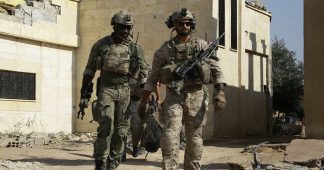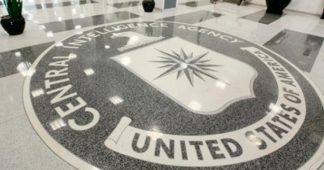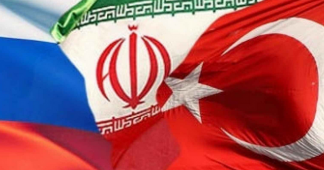Documents show White House and No 10 conspired over oil-fuelled invasion plan
Nearly 50 years before the war in Iraq, Britain and America sought a secretive “regime change” in another Arab country they accused of spreading terror and threatening the west’s oil supplies, by planning the invasion of Syria and the assassination of leading figures.
Newly discovered documents show how in 1957 Harold Macmillan and President Dwight Eisenhower approved a CIA-MI6 plan to stage fake border incidents as an excuse for an invasion by Syria’s pro-western neighbours, and then to “eliminate” the most influential triumvirate in Damascus.
The plans, frighteningly frank in their discussion, were discovered in the private papers of Duncan Sandys, Mr Macmillan’s defence secretary, by Matthew Jones, a reader in international history at Royal Holloway, University of London.
Although historians know that intelligence services had sought to topple the Syrian regime in the autumn of 1957, this is the first time any document has been found showing that the assassination of three leading figures was at the heart of the scheme. In the document drawn up by a top secret and high-level working group that met in Washington in September 1957, Mr Macmillan and President Eisenhower were left in no doubt about the need to assassinate the top men in Damascus.
Part of the “preferred plan” reads: “In order to facilitate the action of liberative forces, reduce the capabilities of the Syrian regime to organise and direct its military actions, to hold losses and destruction to a minimum, and to bring about desired results in the shortest possible time, a special effort should be made to eliminate certain key individuals. Their removal should be accomplished early in the course of the uprising and intervention and in the light of circumstances existing at the time.”
The document, approved by London and Washington, named three men: Abd al-Hamid Sarraj, head of Syrian military intelligence; Afif al-Bizri, chief of the Syrian general staff; and Khalid Bakdash, leader of the Syrian Communist party.
For a prime minister who had largely come to power on the back of Anthony Eden’s disastrous antics in Suez just a year before, Mr Macmillan was remarkably bellicose. He described it in his diary as “a most formidable report”. Secrecy was so great, Mr Macmillan ordered the plan withheld even from British chiefs of staff, because of their tendency “to chatter”.
Read more at www.theguardian.com
 Claims of Syrian Chemical Weapons Attacks Are Total B.S.
Claims of Syrian Chemical Weapons Attacks Are Total B.S. What Derails Planned ‘US-Israeli Military…
What Derails Planned ‘US-Israeli Military… Don’t be Fooled, the CIA was Only Half the Problem in Syria
Don’t be Fooled, the CIA was Only Half the Problem in Syria Hezbollah Accuses US of Using Air Force to Protect Daesh
Hezbollah Accuses US of Using Air Force to Protect Daesh Syria’s FM Walid Muallem: UK Helped White Helmets…
Syria’s FM Walid Muallem: UK Helped White Helmets… Russian, Iranian and Turkish Chiefs of General…
Russian, Iranian and Turkish Chiefs of General…





